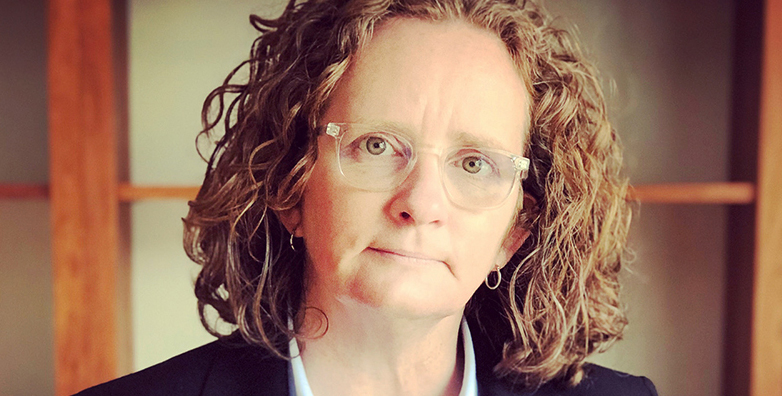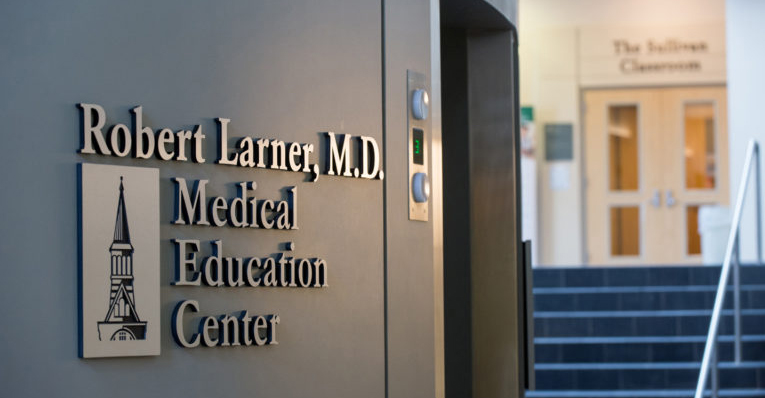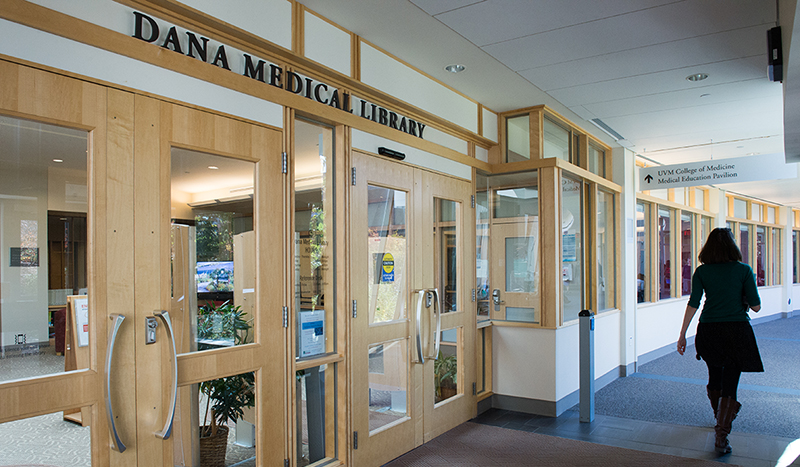-UVM’s End of Life Doula Certificate Program teaches caregivers how to support the dying as well as families and friends.
When Kelly Coffey’s childhood friend lay dying in the hospital, she used her end-of-life skills to provide comfort and support.
Coffey, who works as a staff assistant in the Employee and Family Assistance Program at the UVM Medical Center, enrolled in the UVM End of Life Doula Professional Certificate program in January. By chance, just a few weeks later, Coffey was called to be by her friend’s bedside. It was her first end-of-life experience and it won’t be her last.
“Being there with my friend and her family during those final days was honorable work,” she says. “I don’t know how I would have even navigated that situation without the tools I had already learned in the UVM course.”
The eight-week fully online doula course, developed by the UVM Larner College of Medicine and partner Cabot Creamery Cooperative, helps professionals prepare to meet the growing demand for end-of-life support as people live longer and the dying process continues to become increasingly gradual and anticipated.
End-of-life doulas empower clients, ease anxieties, and help ensure people’s final days are personally affirming and meaningful. Similar to birth doulas, end-of-life doulas are non-medical professionals who offer support and provide caregiver relief. Many end-of-life doulas help complement the care provided by hospitals, senior-care facilities and hospices, as well as to fill in the gaps that occur during the dying process.
End of Life Doula Training Program: Being Compassionate and Present
Coffey, who completed the doula course in March, also works as an advocate for survivors of intimate partner violence. She was drawn to the UVM program because she felt she could offer compassion and care in a time of crisis.
“This program is for anyone willing to embrace their own vulnerability,” she says. “It’s not necessarily for someone who is stoic and strong, but for someone who has that ability to really open up to someone and face what’s in front of them—both literally and figuratively.”
Coffey had been contacted her by friend’s sons in February after their mother was admitted to the hospital’s emergency department. They had no idea she was taking the doula course.
“Because I knew my friend for 45 years, being there felt surreal. My friend was this constant in my life, so in many ways the experience very difficult,” she says. “Still, I can’t put into words what an honor it was to be there with her and for her family to trust me with this responsibility.”
One of the things Coffey quickly learned in the end-of-life doula training program—and put into action at her friend’s bedside—was to be aware of the family’s wishes and remove her personal feelings from the equation.
“I had to be very mindful. I knew—more so than before the course—that this was not about me or what I thought we should do. It was a matter of listing out all of the options and discussing them in detail with my friend’s family and her friends,” she says. “The course helped me realize that when someone is dying, there are no plans to be made. Yes, there is burial or cremation to talk about, but it’s really all about sitting there with that person and their family. Being there meant seeing if hospice was available or asking if my friend’s sons had eaten anything—and everything in between. It changed minute to minute.”
Coffey says she plans to continue to offer end-of-life doula services. As a doula, Coffey believes it’s also critical to continue to provide support and care to family members after their loved one has passed.
“Part of the work of a doula is helping the family afterward in whatever form that takes. The responsibility doesn’t end when the person’s life ends,” she says. “I think the important thing for a death doula is to show up afterward because that’s when reality sets in for the family. When the funeral is over, and a family member is sitting home alone missing the person they’ve lost, that’s the tough part. That’s when the grief starts.”




